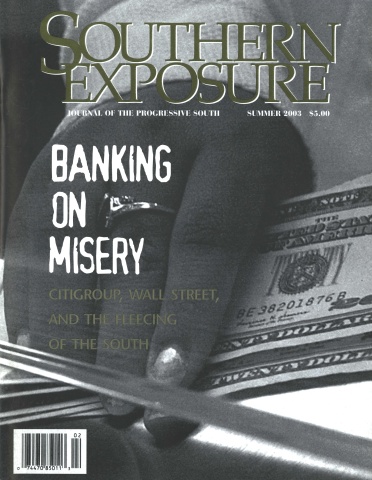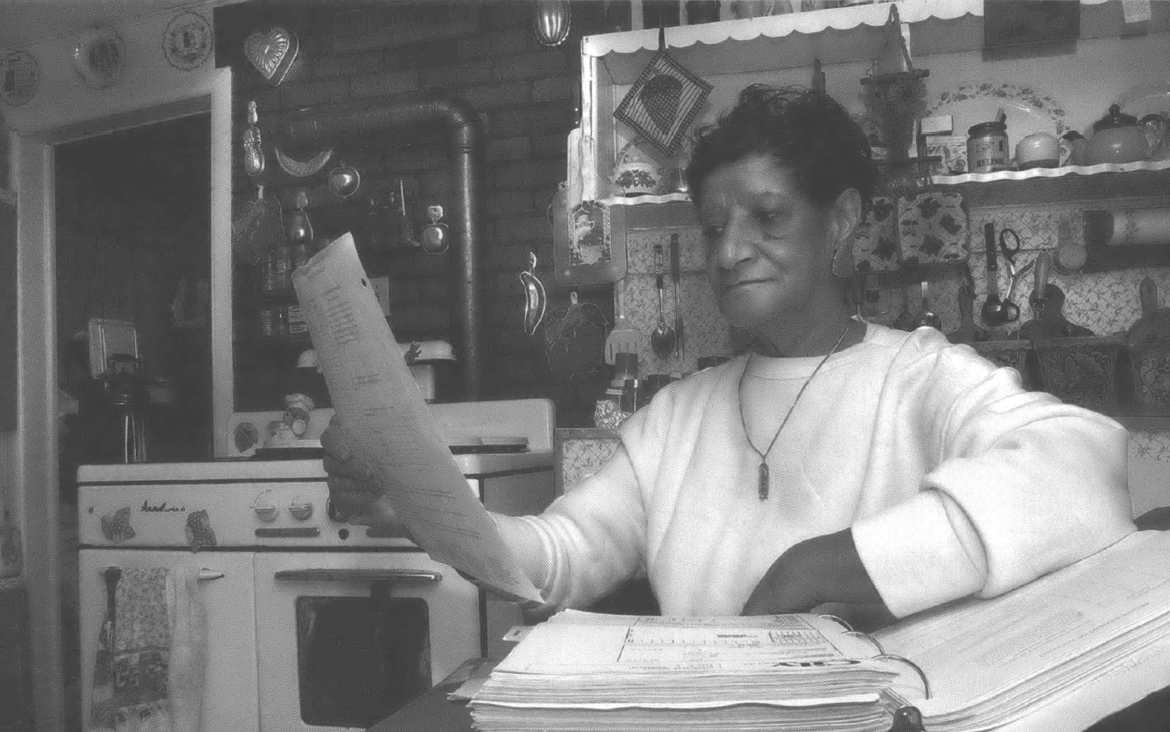
This article first appeared in Southern Exposure Vol. 31 No. 2, "Banking on Misery." Find more from that issue here.
In 30 years, Scharlotta Gardner never bounced a check. One day she forgot to write an entry in her checkbook, and overdrew her account. It was a $35.79 mistake that cost her $75 in fees.
Like many other banks, her bank, City National, in Charleston, W.Va., covers the debts of customers who bounce checks. While this spares them embarrassment and legal hassles, it can also stick them with costly “non-sufficient fund” fees.
Banks call it a courtesy. “It saves customers money,” Houston-based banking consultant Bill Struck told the Dallas Morning News. Strunk and Associates has set up overdraft programs at nearly 600 banks. “This is a value-added service for customers. They like it.”
Critics counter that “courtesy overdraft” programs are disguised loans carrying interest rates that can exceed 500 percent. These services differ from traditional bounced-check penalties because instead of being one-time hits, the fees often keep accumulating until the debt is covered.
They also differ because banks encourage customers to go in the hole; some banks now list depositors’ overdraft cushions on their ATM screens. Many also offer overdraft services not only for checks, but also on ATM withdrawals and debit-card purchases.
The lesson in all this is that “courtesy” pays—for the banks, that is. They reap an estimated $5.2 billion in profits each year from bounced-check fees alone, according to a study by the Consumer Federation of America and the National Consumer Law Center.
And why shouldn’t these transactions be profitable? An earlier CFA study found it costs banks about $1.50 to cover a bounced check—meaning fees of $20, $35, and even $50 represent almost pure profit for the banks.
So it’s no wonder at least 1,000 banks use these overdraft programs. The number keeps growing thanks to the efforts of Strunk and other mostly Southern-based consultants who market overdrafts as a path to bank profits. Six of the nation’s eight major “bounce protection” consultants are headquartered in Texas, Kentucky, and Arkansas.
Some people are fighting back. More than 50 consumer groups have asked the Federal Reserve to require more protections against overdraft fees. The groups say, for example, that banks shouldn’t be able to institute these programs without getting customers’ permission first.
“You ought to have the right to make that choice,” Louisiana banking commissioner John Travis told the Baton Rogue Advocate. “Why should they have the right to set up another program without your consent?”
In Scharlotta Gardner’s case, the bank says it informed her. She says she never got the letter.
The retired cook lives on an income of less than $600 a month. She got into trouble because she wrote a check for $124, but had only $88.21 in her account. City National slapped her with an initial $30 fee plus $5 a day until she could borrow from a friend to cover the debt.
She’s now suing the bank. After she filed the lawsuit, City National modified its overdraft program by dropping the daily fees.
“Ms. Gardner is a real good example of how this can be abusive to people,” her attorney, Bren Pomponio, says. “Especially people on fixed incomes.”
Pomponio notes that banks often pay the largest checks first, increasing the likelihood that smaller checks that follow will bounce, thus producing more fees for the customer and more profits for the bank.
People with fat bank accounts have a margin for error when they make mistakes. So it’s people who can least afford it, Scharlotta Gardner among them, who end up paying the most.
“She didn’t write down an entry,” Pomponio says. “It’s a very simple thing that can happen to people.”
Tags
Taylor Loyal
Taylor Loyal is a staff writer at the Bowling Green (Ky.) Daily News. (2003)

